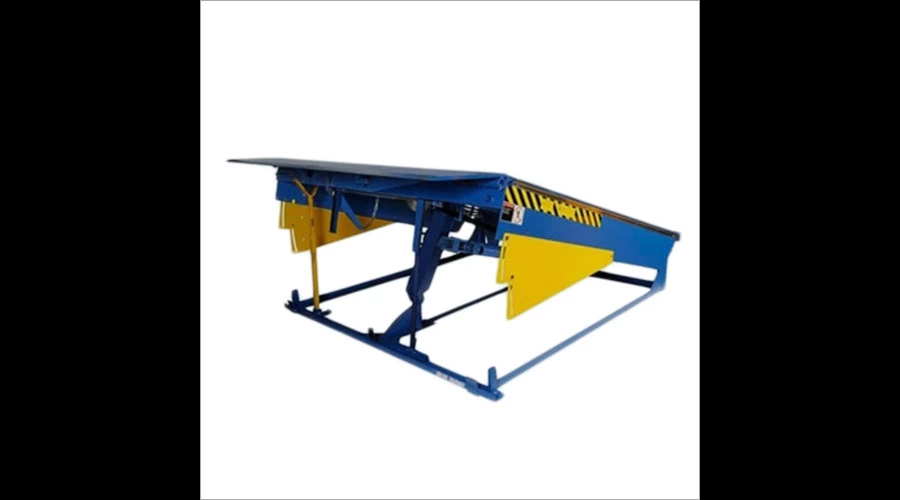
In the world of material handling, efficiency and safety are paramount. Effective management of loading and unloading operations at docks is crucial in optimising productivity and minimising the risk of accidents. One indispensable component of a well-designed material handling system is the dock leveller. This article will give a deep dive into the importance of dock levellers and how they contribute to the smooth functioning of material handling operations.
Dock levellers are specialised devices installed at loading docks to bridge the gap between the truck or trailer bed and the dock floor. They act as a crucial interface, ensuring a seamless transition of materials between the two surfaces. Dock levellers are available in various types, including hydraulic, mechanical, and air-powered, each offering unique features to suit different operational requirements.
Enhancing Efficiency:
Efficiency is the backbone of any material handling system. Dock levellers significantly contribute to streamlining loading and unloading processes, improving productivity. By providing a level and stable surface, they facilitate the safe and efficient movement of materials, reducing handling time and minimising the risk of damage to goods. This efficiency boost translates into faster turnaround times, enabling businesses to handle larger volumes and meet demanding deadlines.
Safety First:
Material handling operations have inherent risks, particularly when loading and unloading heavy cargo. Dock levellers enhance safety by providing a secure connection between the dock and the truck/trailer. They eliminate the hazardous gaps and uneven surfaces that can lead to accidents, such as slips, trips, and falls. Additionally, some dock levellers come equipped with safety features like lip locks, velocity fuses, and push-button controls, further ensuring the well-being of workers and preventing equipment damage.
Compatibility and Adaptability:
Material handling systems vary across industries and facilities. Dock levellers are designed to accommodate these diverse operational needs. They can be customised to fit different dock configurations, including heights, widths, and weight capacities. This adaptability ensures seamless integration with material handling equipment, such as forklifts, pallet jacks, and conveyor systems. With the ability to cater to specific requirements, dock levellers become indispensable to an efficient and well-designed material handling system.
Maintenance and Longevity:
Material handling equipment is subject to heavy use and constant wear and tear. Dock levellers, essential to the material handling system, require regular maintenance to ensure their longevity for optimal performance. Routine inspections, lubrication, and prompt repairs are necessary to prevent unexpected downtime and extend the lifespan of dock levellers. Partnering with reputable suppliers and service providers can help obtain quality products and reliable maintenance support.
Conclusion:
Efficiency and safety are paramount in material handling systems, and dock levellers are crucial in achieving these goals. 13Sqft.com has multiple dock leveller options that can enhance efficiency, minimise accidents, and protect valuable assets by providing a smooth transition surface and ensuring a secure connection between the dock and the truck/trailer. Dock levellers contribute to streamlined operations, reduced costs, and increased productivity when integrated into a well-designed material handling system. To optimise dock levellers' benefits, investing in quality equipment and prioritising regular maintenance is vital to maximising their longevity and performance—our team at 13Sqft.com will guide you and help you get the best dock leveller will suit your needs.
POSTED BY
Ishika Adhana
Digital Marketing Executive